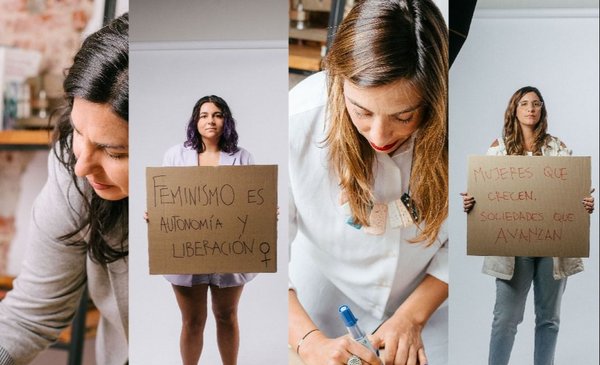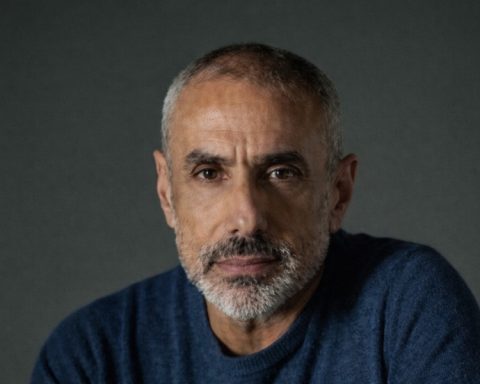As part of its diversity and inclusion program, Fábricas Nacionales de Cerveza (FNC) launched a campaign for this International Women’s Day – celebrated every March 8 – called “Let’s talk about what matters”. Communication spaces will be shared with leading women from different organizations to reflect with an eye on an equitable future in the workplace and the biases that remain to be overcome.
“We want to take advantage of March to reflect on the process of change that we are going through, the progress we have made and everything that we still have to achieve. We create these spaces for conversation and exchange because we understand that it must be the focus of both FNC and society in general”, said the head of Corporate Affairs at FNC, Gabriela Cibils.
The meetings will take place in three media outlets, with the participation of the psychologist specializing in sexuality and gender violence, Victoria Marichal; Maggie Giuria and Macarena Botta, leaders of the Brava agency, a company that works on gender equality in organisations; and the representatives of UN Women, Lorena Lamas and Teresa Pérez del Castillo.
“We seek to build an equitable future, eliminating the micromachismos that are still present in men and women and that we are still ignoring. We think it is a good opportunity to invite conversation and look forward, to discover how women can be more empowered and with fewer restrictions to do what we want”, Cibils deepened, for whom the term micromachismo refers to “small gestures”, ” sometimes very subtle”, that “can even be unconscious and that help to perpetuate gender roles in society”.
In “Let’s talk about what matters” there will also be the collaboration of FNC representatives, who, accompanying the invited speakers, will discuss issues such as sustainable development and empowerment, mental health and gender violence, education and communication, labor equality and intersectional perspective.
Cibils asserted that the FNC staff has naturally adopted, as part of a “cultural evolution”, this type of initiative promoted through the Authenticity Program, which has “a key pillar in the gender perspective.” “This program was generally very well received, since these issues are very welcome by the younger generations, who luckily bring it more incorporated,” he mentioned.
At the same time, she highlighted that many women work on the FNC staff, who have grown in the company and today occupy leadership positions. Nearly 50% of those leadership positions are held by women, something that 20 years ago seemed “highly unlikely.” This change has occurred even in tougher areas, such as industry or logistics and sales, which had a slower process in this regard.
“Because of this clash between the new culture and the previous one, it is important to raise awareness and make these micromachismos visible, so that it is clear to everyone what we are looking for, where we are aiming and what are the complaint mechanisms that exist in situations in which biases are perceived”, insisted Cibils.
Asked if women are left out of the conversations that matter, the head of Corporate Affairs at FNC remarked that currently “this is not the case” in general terms, although in “certain areas it is maintained”. “In the company, women participate to the same extent as men in similar positions. In fact, a special working group called Women in Beer was created almost two years ago, made up of men and women from different areas, whose objective is to identify opportunities for improvement and propose concrete plans to implement”, she pointed out.
And he made it clear that talent is not subject to a gender issue: “There is a long way to go at FNC, surely there is still a lot to do. What is sought is a safe environment where everyone can show themselves as they are, diversity and meritocracy are valued. We do not work with quotas”.
history of beer
Additionally, an audiovisual was presented that reviews the history of beer and the link with women, since they were the first to cook the product 7,000 years ago in Mesopotamia, and to this day they continue to be linked to the production of this drink.
Both the audiovisual and the talks will be available on the web www.charlemosdeloqueimporta.com Starting this March 8.
Inclusion and diversity
FNC has been working for several years on issues such as inclusion and diversity. Internal diagnostic processes have been carried out that have provided the company with the necessary tools to take action and begin to manage change. In addition to policies linked to gender equality, initiatives are developed for the inclusion of the LGBTIQ+ community, for people with disabilities, and diversity is targeted “in its broadest sense”.
The internal inclusion program is based on respect, eliminating unconscious biases so that everyone can feel proud of who they are, being in a caring and safe environment with the peace of mind that no one will judge them.
In addition, FNC adhered to the Women’s Empowerment Principles, an alliance initiative between UN Women and the UN Global Compact, which serves as a platform and framework for action for companies in relation to gender equality. Working together with the Brava agency, talks and internal workshops were held on gender violence, inclusion, unconscious biases and communication languages, among other topics.
FNC seeks not only to manage change behind the scenes, but has made it a goal to do so in its wider network of influence, from distributors and suppliers to its consumers. It has shown that its brands also work towards inclusion and diversity. A clear example of this year is that of Pilsen, which together with Daecpu, will reward the Carnival group that best promotes gender equality.
In addition, for a year and a half, workshops, talks, debate tables and publications have been held in the Plaza Las Pioneras Feminist Space, with which the brand works to promote reflection on the Carnival we dream of.


















